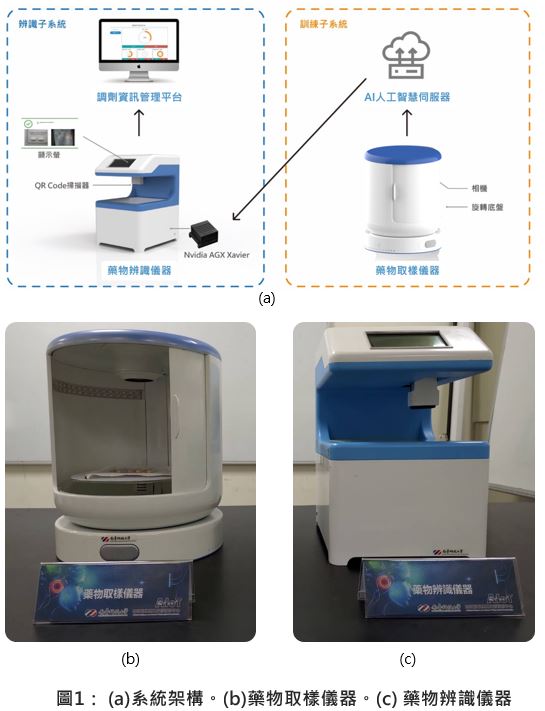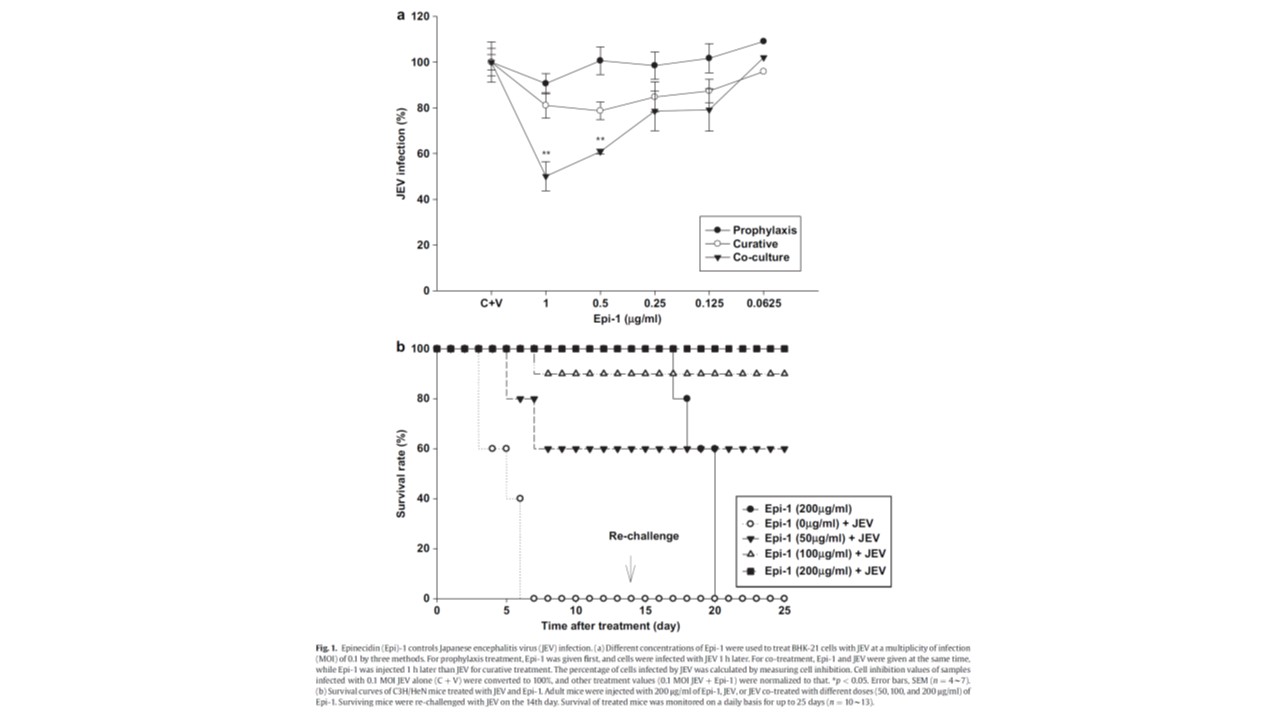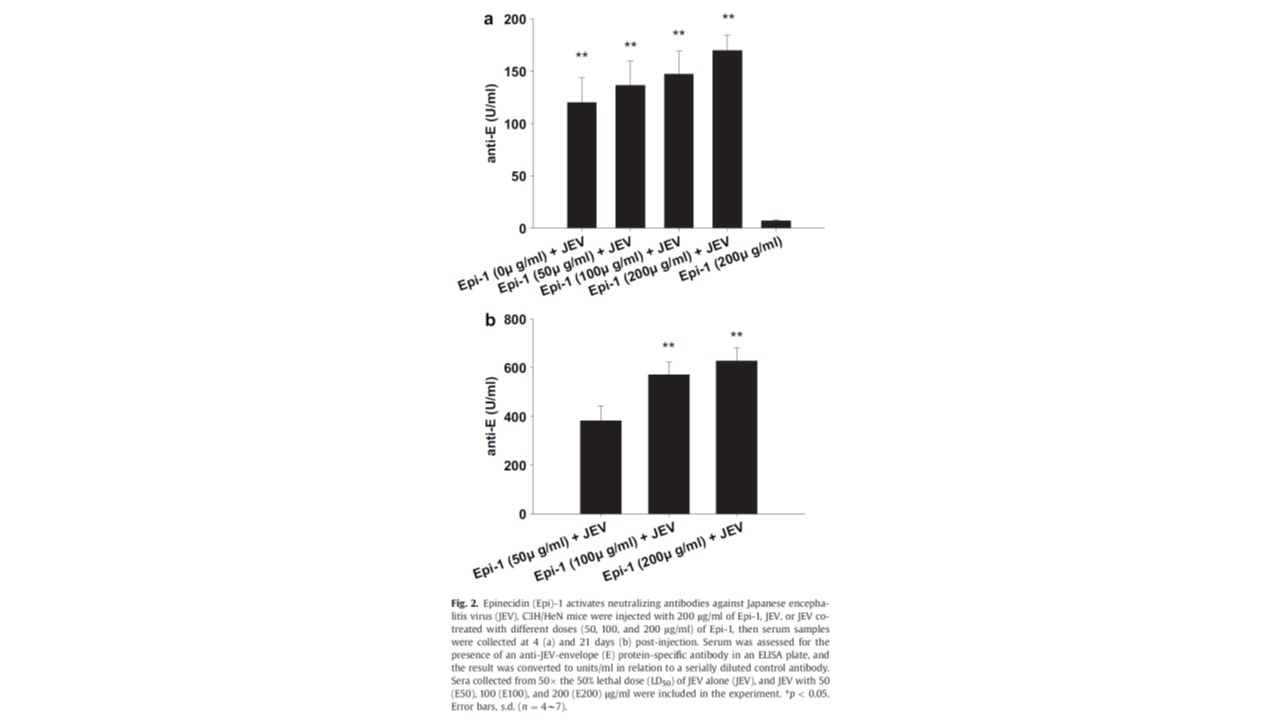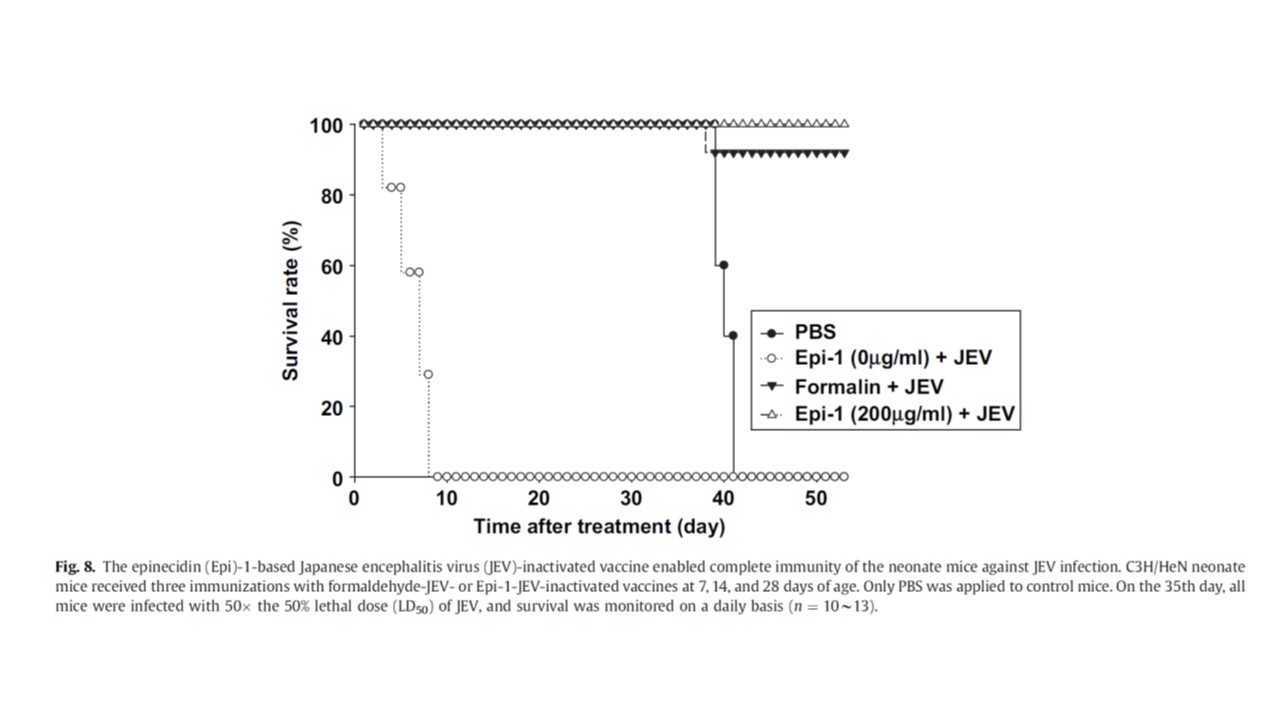| Technical Name | 抗菌胜肽epinecidin-1當作佐劑用於預防或治療病毒性疾病之應用 | ||
|---|---|---|---|
| Project Operator | Marine Research Station, Institute of CellularOrganismic Biology, Academia Sinica | ||
| Project Host | 陳志毅 | ||
| Summary | A method of enhancing a mammalian immune response to a virus is disclosed. The method comprises administering a composition comprising an effective amount of epinecidin (Epi)-1the virus to a mammal, wherein the virus has envelope proteinis infectious to the mammal. In this technique, Epi-1Japanese encephalitis virus (JEV) were mixedinjected into mice. The mice were infected with JEV 14 days later,all mice survived. This technology has also been verified in the preparation of vaccines for foot-and-mouth disease virusnervous necrosis virus. |
||
| Scientific Breakthrough | The previously study concluded that Epi-1 could interfere with the early stages of FMDV infection through mechanisms. In vivo studies in mice suggested that Epi-1 may be able to induce adaptive immunity against JEV re-challenge. The TEM results revealed that the viral particles were surrounded by sticky fluid with darker central color as compared to the PBS-treated virus. Treatment with Epi-1 was suggested to inhibit the spread of virus by inducing aggregation of viral particles into largedense masses. |
||
| Industrial Applicability | Epi-1, a peptide from fish, is non-toxic to cellsanimals. It can cause lysisdestruction of virus particles. Epi-1 can replace formaldehyde in traditional methods for preparing vaccines. Epi-1 is much safer, more time-efficientmore effective than formalin in inactivating viruses. An additional advantage for substituting Epi-1 for formalin in manufacturing vaccine is that Epi-1 is also an effective vaccine adjuvant that can enhance a mammalian immune responses to virus infection. |
||
| Matching Needs | 天使投資人、策略合作夥伴 |
||
| Keyword | antimicrobial peptide Epinephelus coioides vaccine virus adjuvant animal human fish epinecidin-1 aluminum | ||
- zoocjy@gate.sinica.edu.tw
other people also saw







